The Ithaca Gun Company introduced their “Auto & Burglar” model of side-by-side shotgun in 1922. This was not the only gun of its type made for the commercial market, but it was one of the better ones, and is probably the best remembered type today. The premise was simple: take a standard SxS shotgun, cut the barrels down to 10 inches (255mm) and replace the stock with a pistol grip. Presto, you have an intimidating and compact defensive weapon.
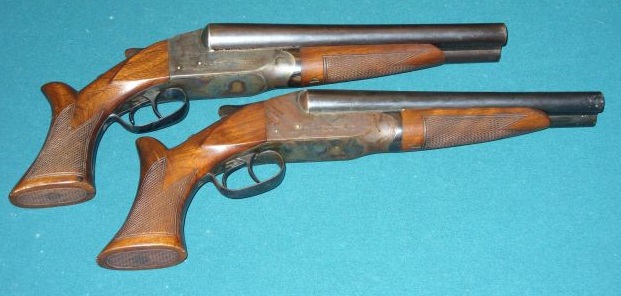
When introduced in 1922, there was no particular legal status for a firearm of this type, although the passage of the National Firearms Act in 1934 effectively ended their production and sale (they sold for typically about $40, and the NFA placed a $200 tax on their transfer). They actually didn’t sell all that well before the legislation – only approximately 4500 were made between 1922 and 1934, and not all of those were sold (unconfirmed rumor is that the remaining stock was sold to the UK after Dunkirk, when the British were desperate for firearms of any sort).
Two primary models of the Auto & Burglar were made, as Ithaca introduced a new SxS shotgun action in 1925 (and the Auto & Burglar was simply a conversion of standard factory actions). The early guns (1922-1925) are easily distinguished by a prominent spur on the grip, which was designed to prevent the gun from rolling in the hand upon firing. However, that spur proved to be a bit fragile, and easy to hit on things and break. When the new action was introduced in 1925, the Auto & Burglar grip was redesigned to have a much more squared-off grip, without the spur to potentially damage (it was also a less expensive grip for Ithaca to make). The barrel length was also increased to 12.2 inches (310mm) around the same time – the later style guns can be found with both long and short barrels.
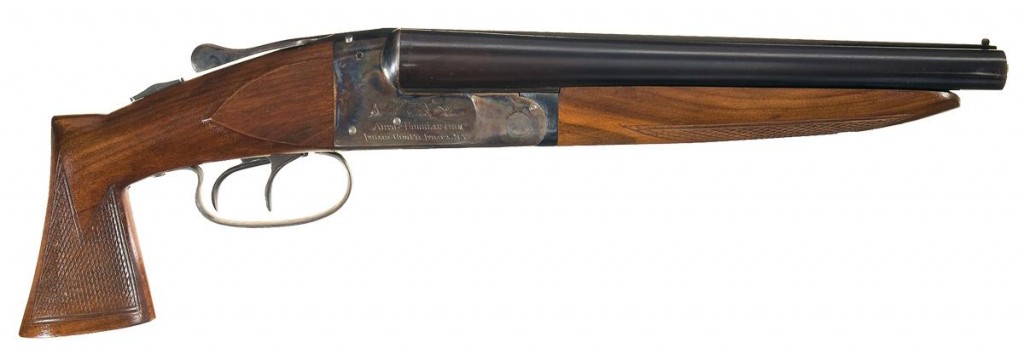
Despite these changes, the standard Auto & Burglar throughout production was chambered 20 gauge shells (2.5 inch in the early guns and 2.75 inch in that later ones), with cylinder bores and double triggers. There are a few references to .410 and 28 gauge examples, but I have been unable to find any suggestion of a 12 gauge version. That makes sense, given the punishing recoil such a gun would have – but it is odd in light of a set of photos I was recently sent by a reader (thanks, Robert!). This fellow has a pair of Auto & Burglar guns (both legally registered) which he inherited from hist grandfather. One is a standard 20 gauge example, and the other is a bona fide 12 gauge version:
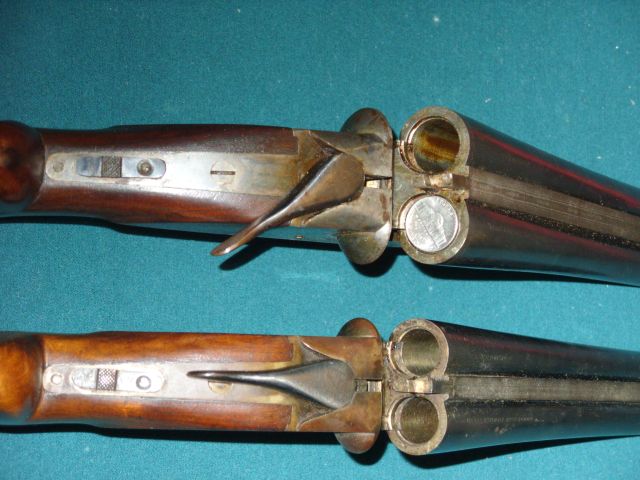
Since the Auto & Burglar was made from stock shotgun actions, there is no reason why a 12 gauge version could not have been easily made by special order, and that is almost certainly what happened in this case. The gun otherwise appears identical to a typical example.
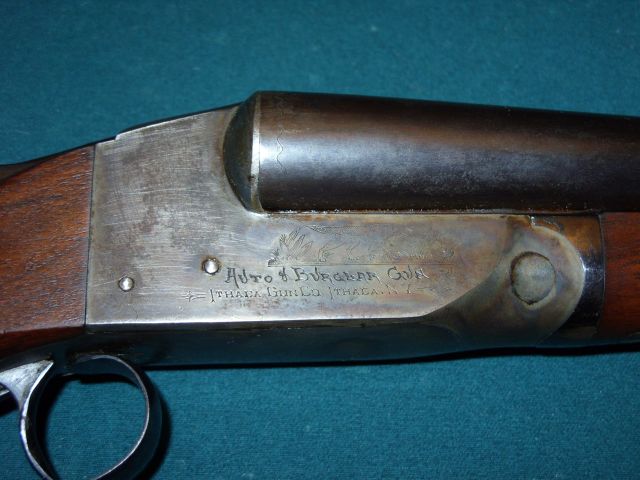
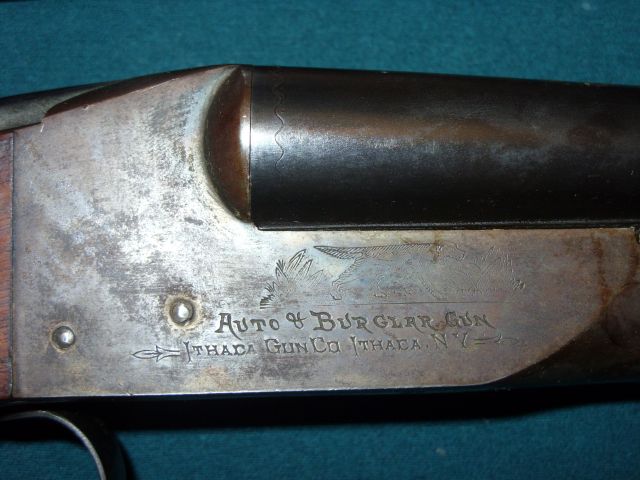
The early guns are generally referred to as Model A and the later ones as Model B, although these are designations created by the collecting community and were not applied by Ithaca. Ithaca also marketed a flap holster for the gun, which is a fairly valuable accessory today. According to the catalog it was, “A special designed sole leather holster which may be attached to one’s belt or hung in a convenient place in an auto, sleeping room or bank – costs $4.00.” A couple Chicago banks were in fact some of the first buyers for these guns, as this was also prior to FDIC insurance to protect banks from robbery.
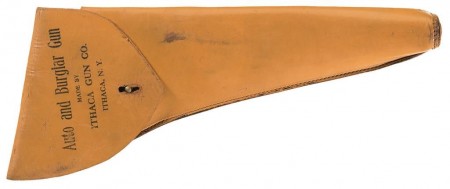
If anyone has additional information on 12-gauge examples of the Auto & Burglar, I would be very interested to hear it!
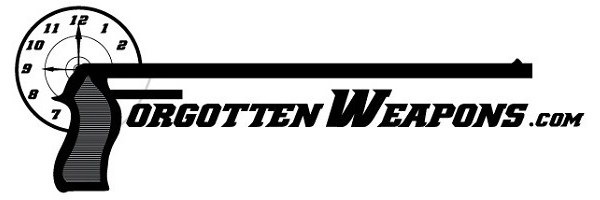
These are basically the old Mob Lupara sawed off shotguns?
What is the holster worth